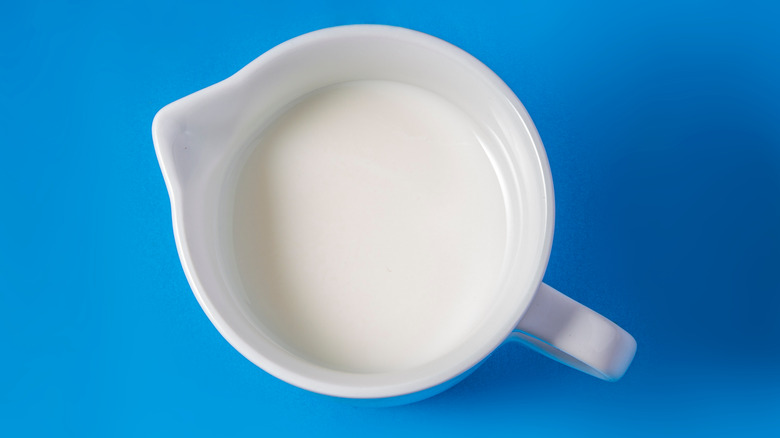This Is Why Your Scrambled Eggs Are Rubbery
Everyone has a very specific way they like to take their eggs, no matter the time of day or what mood they're in. Whether you love soft-boiled eggs with a runny yolk, the more set over medium fried eggs, or even plain, old scrambled eggs, there's one thing that most people can likely agree on: overcooked eggs are the worst.
If you're someone who likes to eat eggs but can't stand to consume them when they're overly soft or runny, then you've probably made some seriously rubbery overcooked eggs, all while trying to avoid undercooked eggs. Thankfully for your palate and any future eggs you care to eat, there's a way to cook them well without destroying their texture.
According to Fine Cooking, the proteins within eggs begin to break down as they are heated and cooked. When eggs are cooked past their semi-solid state, the water that is still inside the egg begins to evaporate. With enough heat and time, it disappears completely. This also causes the proteins to contract tightly and makes the texture of the eggs turn into a rubbery mess.
This is how you can avoid making rubbery eggs
While you might think cooking the eggs for a shorter time or at a lower hat is the best way to avoid rubbery eggs, it isn't the only solution. That's especially true for those who prefer their eggs cooked well. The solution? A bit of liquid. Food52 explains that adding additional liquid to the scrambled eggs before they hit the pan gives them some wiggle room to cook through before all of the moisture can evaporate. Think of the extra liquid as a culinary insurance policy.
To successfully make great eggs using this trick, you don't need to add more than about one tablespoon of additional liquid. And the liquid itself can vary, from simple water to milk, butter, or even some heavy cream for those indulgent mornings. Any of these liquids will give the eggs the extra moisture they need to stay soft while still cooking all the way through. Better yet, you'll end up with even fluffier eggs to enjoy when they finally hit your plate.
So, try adding a touch more liquid to your eggs before cooking them next time. It just might save your breakfast.

